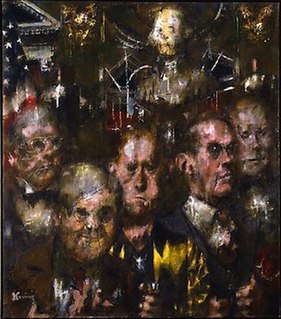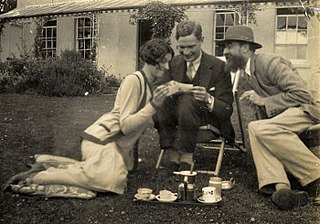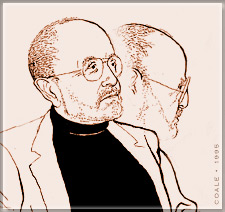A Quote by William Wordsworth
Poetry is the outcome of emotions recollected in tranquility.
Quote Topics
Related Quotes
A writer works from the material she has, but it comes from the unconscious. Everything is stored up and one never knows what comes up to the surface at a given moment. A period of gestation is certainly needed, what Wordsworth called ‘emotion recollected in tranquility.’ You cannot write about an experience when you are living it, suffering it. You are too busy surviving to look at it objectively. At least I can’t.
I distrust summaries, any kind of gliding through time, any too great a claim that one is in control of what one recounts; I think someone who claims to understand but is obviously calk, someone who claims to write with emotion recollected in tranquility, is a fool and a liar. To understand is to tremble. To recollect is to re-enter and be riven. ... I admire the authority of being on one's knees in front of the event.
A great emotion is too selfish ; it takes into itself all the blood of the spirit, and the congestion leaves the hands too cold to write. Three sorts of emotion produce great poetry - strong but quick emotions, seized upon for art as soon as they have passed, but not before they have passed ; strong and deep emotions in their remembrance along time after ; and false emotions, that is to say, emotions felt in the intellect. Not insincerity, but a translated sincerity, is the basis of all art.
On moral grounds, I think that if you believe a certain outcome is a very possible outcome, you have an obligation to tell people that. With global warming, the probability of a bad outcome if we stay on our current emission trends is incredibly high. If you know a bad outcome is likely to happen, what right do you have not to communicate that? You go into a doctor's office, what are they going to do - not tell you the diagnosis?




































